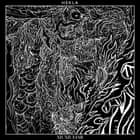In the century since Leon Theremin invented his eponymous instrument – as a Lenin-approved symbol of Soviet technological ingenuity – the theremin has been paraded as the human face of electronic technology. From classical musician Clara Rockmore in the 1930s and psych rockers Lothar and the Hand People in the 1960s to the soundtracks of Miklós Rózsa and the jazz-infused solos of Pamelia Kurstin, the theremin is often used as an exotic novelty sound, placed alongside “proper” instruments.
The (literally) frictionless device – you change the pitch by moving one hand further or closer to an antennae, and alter the volume moving the other hand up and down – can sound uncannily like an operatic human voice, a swanee whistle, a violin or an FX-laden electric guitar.
Iceland’s Hekla Magnúsdóttir started out playing her theremin with a surf-rock band. But she’s now part of a generation of musicians who are reclaiming the instrument’s unique properties on their own merits. Throughout Xiuxiuejar (Catalan for “to whisper” – Hekla has lived in Barcelona for much of her life) she multitracks bass lines, flute-like melodies and string-like mid-range counterpoints on multiple Moog Etherwave theremins, sometimes whispering vocals over the top.
On Ris og Rof (Rise and Rapture) Hekla layers eerie, wailing sounds over distorted feedback drones, while her theremins resemble a robot choir singing a fragment from a Bach chorale on Tangarhald (Pincer Grip). On Silfurofinn (The Silver Switch) her theremins sound like an astral sitar, improvising around a harmonic minor scale. Best of all is on Sólin Gekk (The Sun Went Down), where her vibrato-heavy harmonies chirrup and throb in agonisingly slow motion.
Also out this month
The work of Pulitzer prize winner (and one-time Kanye West collaborator) Caroline Shaw has often left me cold, but Evergreen (Nonesuch, 23 September) is a witty piece of retro-futurism that buzzes with ideas. There is an impressionistic song cycle and a rather lovely setting of a 12th-century French poem sung by Shaw, but the highlight is the opening Three Essays, which leaps between nods to Elgar, strident minimalism, dense chromaticism, slurring Bollywood-style voicings and creaking cello drones.
Valunta (Self-released), the latest Bandcamp album by Finnish cellist and composer Aki Yli-Salomäki, finds him teaming up with the Lohja City Orchestra to create a series of woozy, slow-moving, deeply Nordic miniatures. Fractals (Manners McDade) is a fascinating album by Bristol-based composer Tess Tyler: side one features minimalist electronica informed by dub and dance music; side two features a live recording of interpretations of the first side’s music performed by Bristolian chamber outfit the Spindle Ensemble.

